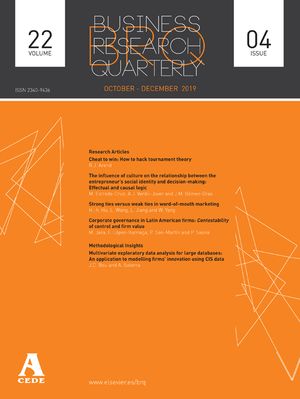El marketing de relaciones está muy preocupado por mantener relaciones estables y duraderas con los clientes. La calidad de la relación es un concepto emergente que intenta medir el valor de un cliente a lo largo del tiempo. La revisión de la literatura desvela que los indicadores que determinan el constructo son la satisfacción con la relación, la confianza del cliente y el nivel de compromiso del comprador. Tras identificar el constructo como formativo, se plantean las relaciones entre las variables del modelo. Los resultados muestran que la satisfacción es el principal determinante de la confianza y del compromiso afectivo. La confianza es el único antecedente directo del compromiso cognitivo.
Relationship marketing bothers about maintaining stable and durable relationships with the customers.
The relationship quality is an emergent concept that tries to measure the value of a customer throughout the time. The literature review reveals that the indicators which determine that construct are the satisfaction with the relationship, the customer confidence and the level of the buyer commitment. After identifying this construct as formative, the causal model is proposed.
Results show that satisfaction is the principal determinant of confidence and affective commitment. And confidence is the only direct antecedent of cognitive commitment.




